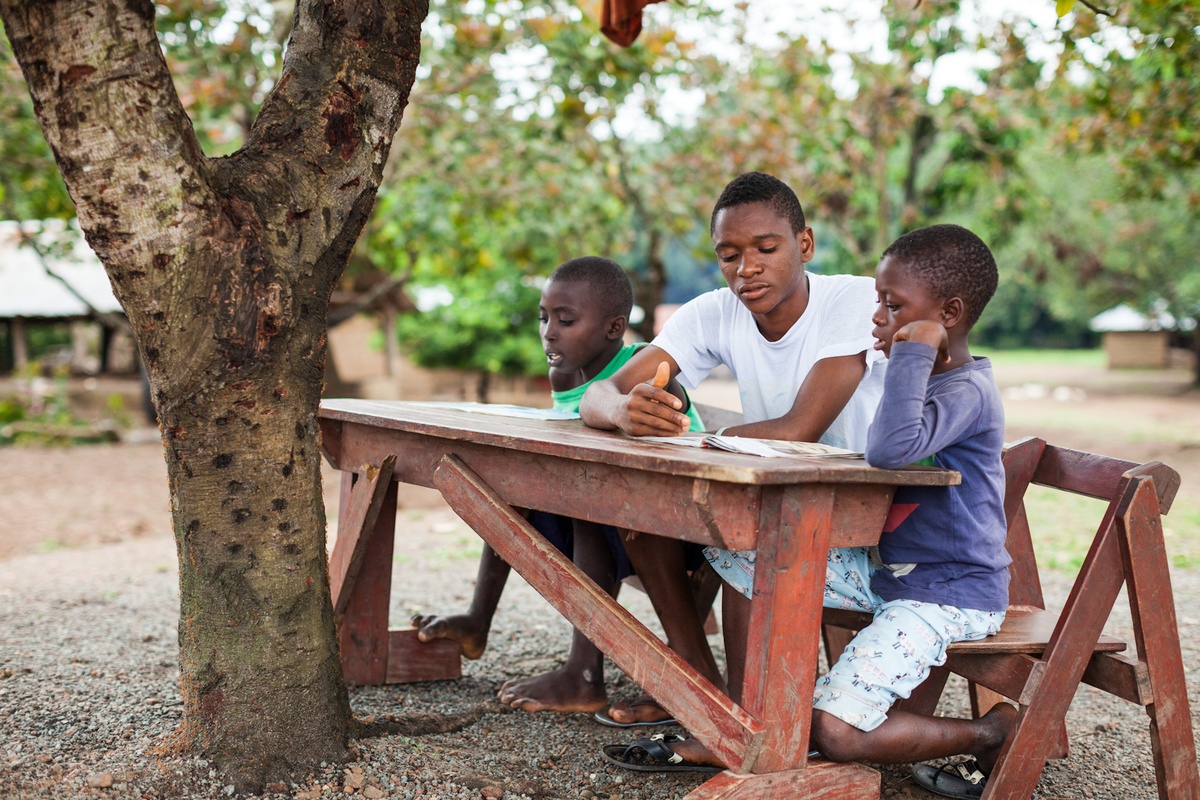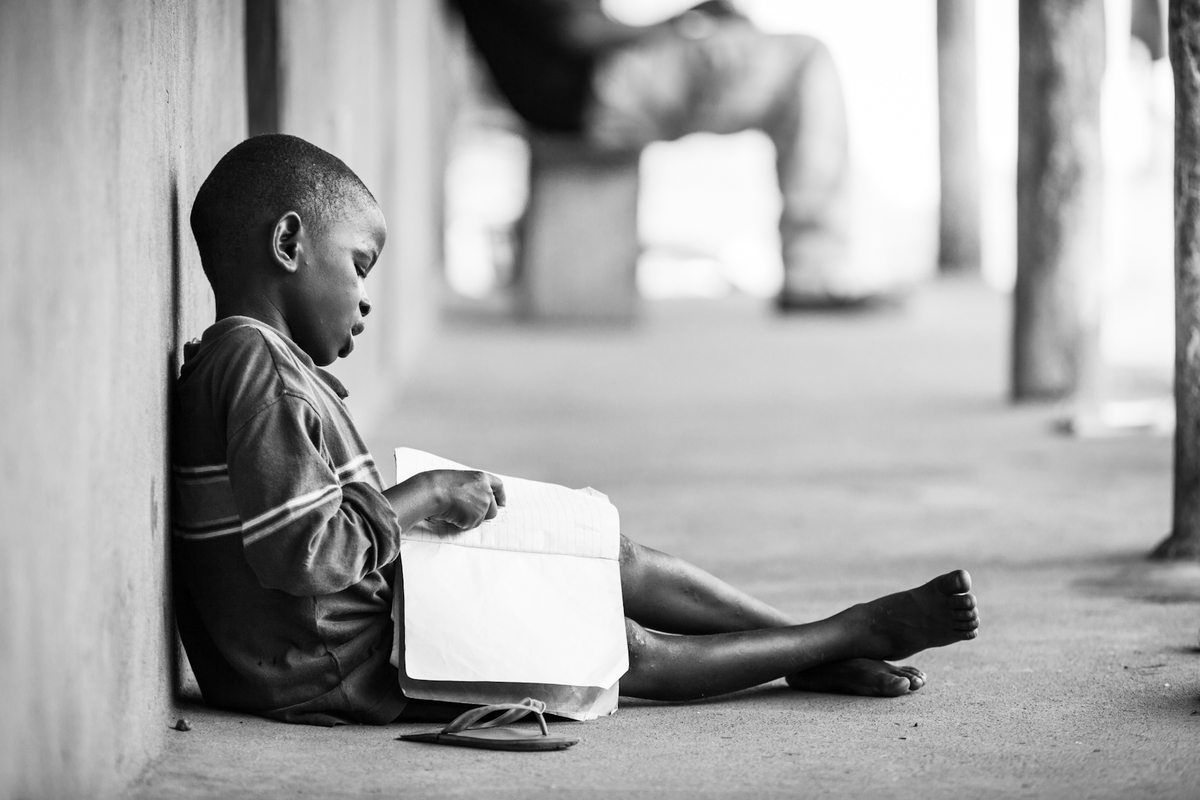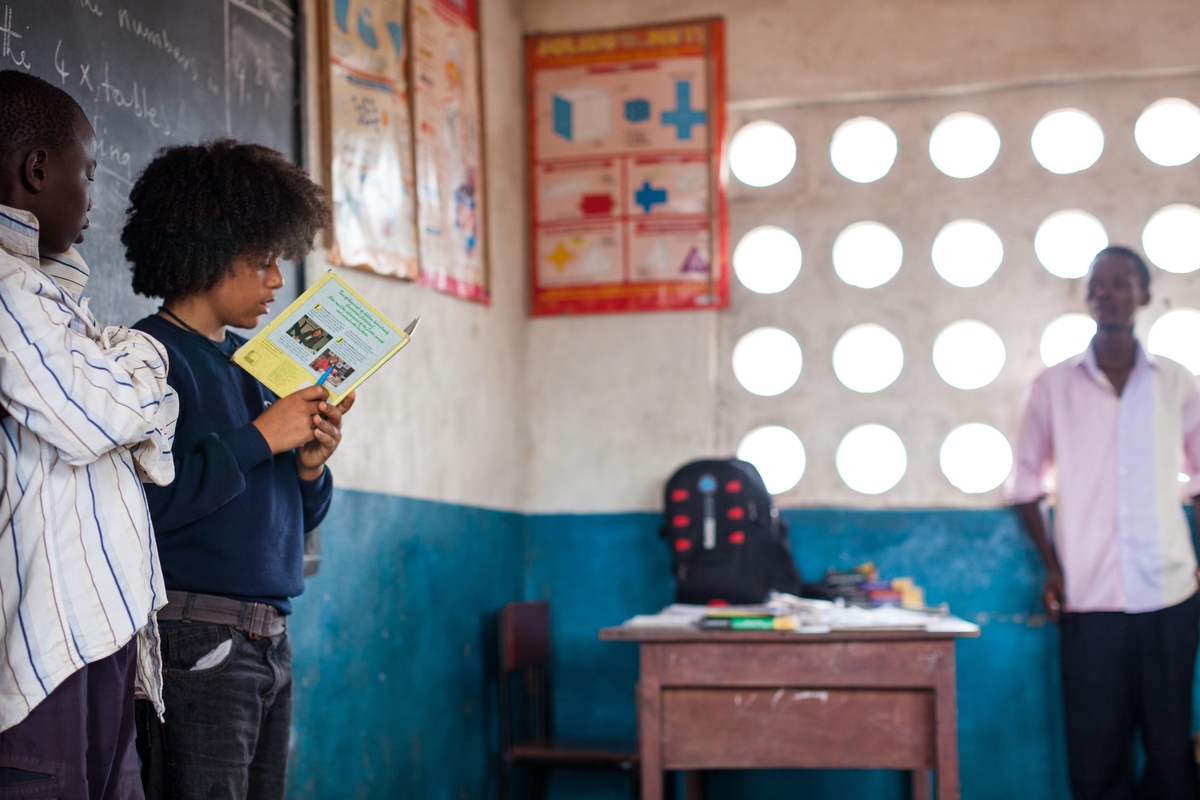How do we do a better job of cultivating young readers?

In an increasingly screen-filled western world, we have seen the obvious love of books dying off for some decades among the younger generations. My own father claimed to have seen a massive rise in average reading ages among the children he was teaching since the arrival of the television in the average British living room. In the developing world, however, the problem is often a very different one.
In Sierra Leone, none of the 17 different Sierra Leonean local languages are traditionally written. There is a transcription done now as part of the efforts for culture preservation but this transcribed text is not part of how the languages are naturally acquired in the communities using them. This means that children do not grow up having books in Kathemne, Mende or Limba thrust into their hands to encourage their engagement with the written word. These sorts of children’s books do not actually exist.
When children go to school, they are thrust into trying to learn a new language, English, in order to be able to access the written word in order to undertake the rest of their education. At the same time as having to learn the vocabulary, instructions, and normal usage of the language, they have to engage with these funny shapes on a page that they are told have meaning.
In addition to this, there are not many books and educational resources around so, whereas the average middle class British child has dozens of books before they are 1 year old, the average Sierra Leonean secondary school student can probably only produce a handful of scruffy exercise books on request.
All this just means that children struggle to conceive of reading as anything other than a chore, and only read for the purpose of passing exams, full stop!
In EducAid we have been able to persuade a good number of friendly partner schools in the UK and elsewhere to send us books, and we have generous donors who buy and send beautiful reading materials. The big challenge remains to convince children and young people that reading is an enjoyable adventure rather than a hardship.

In EducAid we employ a few methods to address this. As children join the ‘Sparrows’ class, our most junior Primary class, they start learning their phonics sounds. As soon as they have 2 or 3 sounds, they start piecing them together into simple words. Each ‘Sparrow’ has a little bag of words which represent all the words she can read and write. Within a week, a child can suddenly start to be very proud of herself because she can now read 7 words, tomorrow she can read 12 words with the addition of one sound, etc etc. Success is pointed out and celebrated. Exciting books are read to the children and they are then encouraged to read them together in small groups on their own again later. The children use Inge Wilson’s ‘Tales Toolkit’ to tell each other exciting stories and then write them up, until little by little the culture of story telling and reading as an adventure is becoming more and more normal. When children progress to Kingfishers and Hawks class, their independent reading (and writing to go alongside) is developed and celebrated. By the time the children leave primary school as Eagle, they are able to read confidently out loud and lose themselves in a story that transports them across the world.
Because there are no exams in Sierra Leone on reading, per se, it has taken some children (and let’s face it, some staff) quite a while to see the value of reading non-text books or prescribed texts but as the children grow in confidence and creativity, empathy and ability to bring their knowledge from reading into their own lives, the transformation is happening.
If you are in a position to help us in our work with vulnerable young Sierra Leoneans, please do go to EducAid to find out more and to make a donation or maybe buy a book from our wishlist.
Thank you in advance for your generosity and support.
